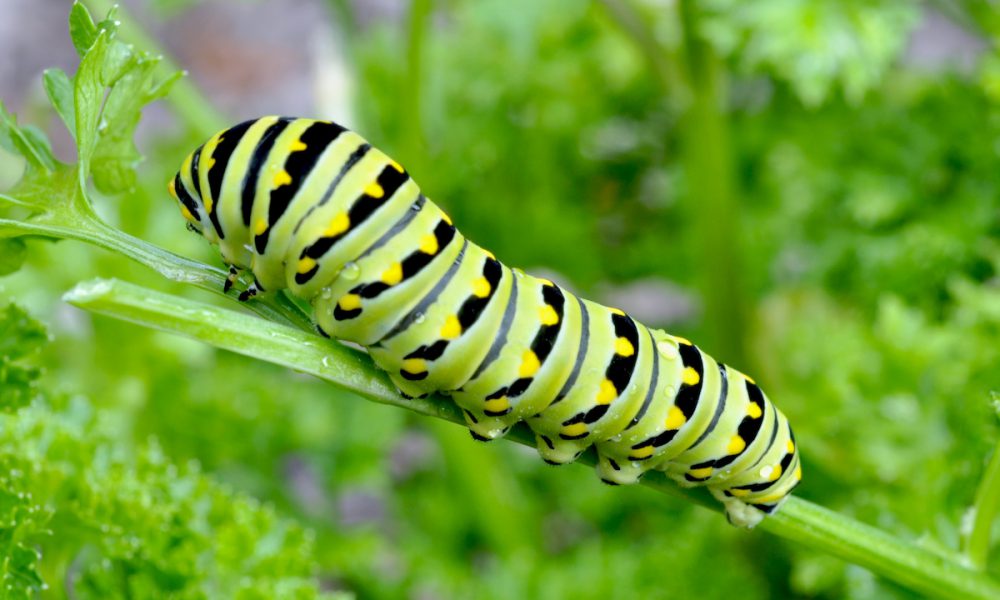
During July and August in Georgia, it is extremely important to get control of summer insects such as mites, aphids and caterpillars as well as diseases such as scab, blight, and leaf spot are treated. When you hire Houseman Services for your year-round Tree & Shrub Program, we will make treatments all year systematically to handle seasonal insects and diseases, feeding and fertilization. Here is some information about the insects and diseases
Mites
Mites are small arthropods belonging to the class Arachnida and the subclass Acari. The term “mite” refers to the members of several groups in Acari but it is not a clade, and excludes the ticks, order Ixodida.
WebMD reports that “scabies is not an infection, but an infestation. Tiny mites called Sarcoptes scabieiset up shop in the outer layers of human skin. The skin does not take kindly to the invasion. As the mites burrow and lay eggs inside the skin, the infestation leads to relentless itching and an angry rash”.
Aphids
Aphids are small sap-sucking insects and members of the superfamily Aphidoidea. Common names include greenfly and blackfly, although individuals within a species can vary widely in color. The group includes the fluffy white woolly aphids.
“Aphids seem to find their way into every garden. They are small, soft-bodied insects that can survive in almost any zone. Aphids multiply quickly, so it’s important to get them under control before reproduction starts. Many generations can occur in one season. The good news is that they tend to move rather slowly and aphid control is relatively easy. Nymphs and adults feed on plant juices, attacking leaves, stems, buds, flowers, fruit, and/or roots, depending on the species. Most aphids especially like succulent or new growth. Some, such as the green peach aphid, feed on a variety of plants, while others, such as the rosy apple aphid, focus on one or just a few plant hosts”, states The Old Farmer’s Almanac.
Caterpillars
Caterpillars are the larval stage of members of the order Lepidoptera. As with most common names, the application of the word is arbitrary and the larvae of sawflies commonly are called caterpillars as well.
Caterpillars with their cutting and chewing mouthparts can cause an exceptional amount of damage if not treated early-on or through prevention.
Scab
“Scab, in botany, any of several bacterial or fungal plant diseases characterized by crustaceous lesions on fruits, tubers, leaves or stems. The term is also used for the symptom of the disease. Scab often affects apples, crabapples, cereals, cucumbers, peaches, pecans and potatoes. Leaves of affected plants may wither and drop early. Potatoes are especially susceptible to common scab, caused by a bacteria (Streptomyces scabies and related species) that spreads rapidly in dry alkaline soils. It can be prevented by avoiding the use of materials such as wood ash, fresh manure, and lime that will add alkalinity to the soil. Other disease-prevention methods include planting resistant varieties or disease-free seeds, tubers, and corms; destroying diseased parts; removing weeds; rotating vegetables and flowers; and regularly spraying plants with fungicides, if appropriate”, reports Encyclopaedia Britannica.
Blight
Encyclopaedia Britannica states that “blight, any of various plant diseases whose symptoms include sudden and severe yellowing, browning, spotting, withering, or dying of leaves, flowers, fruit, stems, or the entire plant. Most blights are caused by bacterial or fungal by infestations, which usually attack the shoots and other young, rapidly growing tissues of a plant. Fungal and bacterial blights are most apt to occur under cool moist conditions, and most economically important plants are susceptible to one or more blights, including tomatoes, potatoes, and apples, as well as many ornamental species”.
Leaf Spot
Pathogen-caused leaf spot diseases, particularly those of stone fruit trees and such vegetables as tomato, pepper and lettuce are of two types, those caused by bacteria and those caused by fungus. Leaf spotting of either kind is generally similar in appearance and effect. Prevention and treatment of both kinds often involve the same practices.
This disease overwinters in the soil around infected plants as well as on garden debris and seeds. It will also remain in the twig cankers, leaves, stems and fruit of infected trees.
Houseman Services is the only complete service company in the Athens, GA area. We provide Weed control, fertilization, shrub care, mulch & pine straw, sod, annual plantings, irrigation, and commercial & residential lawn maintenance. We are also state certified and licensed in wood destroying organisms (termite control), household pest control, public heath, and turf & ornamental weed control. We are licensed to control and treat mosquitoes, termites, all pest problems and turf & ornamental weed control. Contact the professionals at Houseman Services and set up a free inspection of your yard. We have been servicing homes and businesses in the Athens, Clarke County area since 1985!